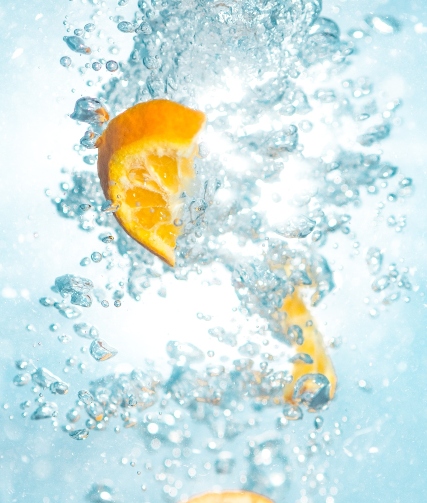
Sluggish? Hungry? Got headaches, dizziness, joint pain, constipation, acne? You could be dehydrated. Find out how much water you should be drinking and how to increase your intake.
Water transports nutrients around the body, lubricates and protects our joints, aids our digestion, improves our mental function, relieves fatigue, limits changes in our body temperature and facilitates detoxification.
However many of us live in a dehydrated state, leading to constipation, headaches, joint pain, poor concentration, kidney stones and kidney issues, dizziness, weight gain and other more serious health implications.
We don’t always feel thirsty when our body needs water. In fact, by the time we feel thirst we’re often quite dehydrated.
Furthermore, our thirst reflex diminishes as we age (also along with certain medical conditions such as diabetes).
Signs you could be dehydrated
- Fatigue
- Headache
- Lack of concentration
- Joint pain
- Constant hunger
- Flushed and/or dry skin
- Dizziness
- Thirst
- Acne and skin conditions
- High or low blood pressure
- Sluggishness
- Dry mouth and eyes
- Muscle cramps
- Halitosis
How much should you be drinking?
The answer to this is individual, depending on your activity level, diet, sodium intake, caffeine intake and current state of health.
And despite what you may think it is actually possible to drink too much water, which overloads your kidneys and dilutes the blood to a dangerous extent to disturbs your body’s sodium balance, although we rarely see this in clinic.
It is important to drink the right amount of water for you.
One of the best ways to determine this is using your weight as a guide. You need 0.033 litres of water per kilogram of body weight. This roughly equates to:
- 60kg = 2 litres
- 75kg = 2.5 litres
- 90kg = 3 litres
- 105kg = 3.5 litres
You will need to increase these amounts if you exercise (between 2-4 cups an hour), and whenever you are exposed to high temperatures or dry conditions such as indoor heating and taking infrared saunas.
Herbal tea counts towards your water intake, but coffee and black tea subtract from your water intake. So drink an extra glass of water for every cup of coffee or black tea.
You know you are drinking the right amount of water if your urine is a very pale straw colour – barring the first urine of the day upon waking. Urine will also be darker if you take a B vitamin supplement as the flavin component of riboflavin is excreted via the urine, or certain pharmaceutical medications which influence your body to hold onto more fluid.
Refer to the urine colour chart from the Australian Department of Health for a visual guide to assess how hydrated you are, and how much water you may require as a result.
Tips to increase your water intake
- Keep a full glass of water beside your bed to encourage you to drink upon waking;
- Aim to get down 2-3 glasses of water before breakfast to start you off on your daily goal;
- Warm water with lemon juice (and a slice of fresh ginger root if you have it) is a great kickstart to your digestion in the morning, and adds a bit of flavour;
- Carry a stainless steel or glass waterbottle everywhere. If you don’t have one already, purchase one you love so that you will happily carry it around;
- Flavour your drinking water with fresh berries, citrus slices, mint or cucumber slices to improve the taste if required;
- Drinking herbal tea counts towards your water intake so swap caffeinated tea and coffee for a quality herbal tea;
- If you forget to drink, set a timer or use an app or a paper checklist to prompt you to drink up. If you have a Fitbit you can use the “Log some water” section of your app to check off every glass or bottle: after a few days you will get a good sense of how many you require and how often to reach your daily goal;
- Eat your water! Chowing down on water-rich fresh foods such as vegetables and fruits (think iceberg and cos lettuce, cucumbers, celery, citrus, pineapple, melons and blueberries) is especially hydrating as the water in these foods also contain electrolytes which assist in getting the water into your cells where it is required. The water is also bound up in plant fibres so that your body absorbs it slowly, thus keeping you hydrated longer and not passing right through you.
When not to drink water
Try to avoid downing a glass of water within 30-60 minutes of a main meal, to reduce the possibility of diluting your stomach acid and digestive juices which are required for healthy digestion.
And of course, it’s a good idea to avoid drinking within 1-2 hours of bedtime so your sleep won’t be disturbed by the need to urinate.
